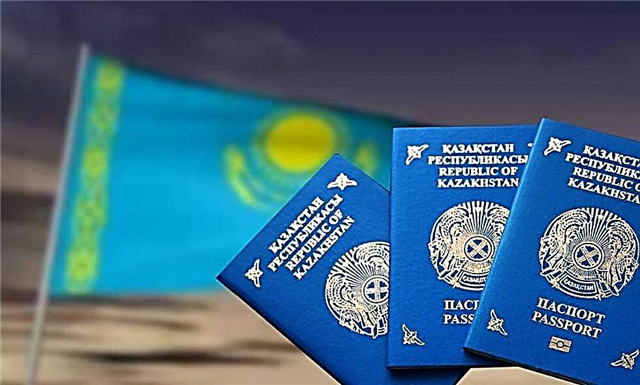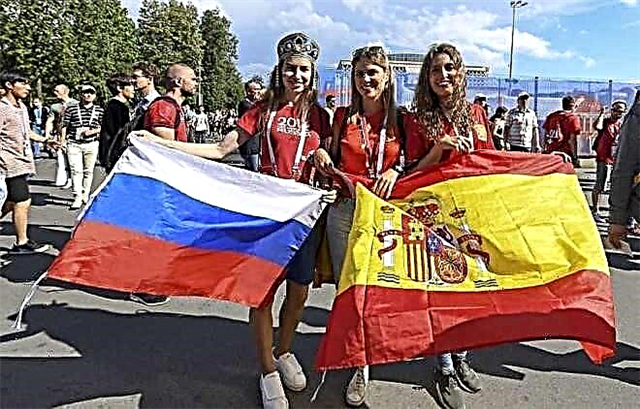Despite the fact that Russians have been living in Spain for more than a dozen years, and Spain and Russia have long-standing friendly ties, the Russian diaspora in the kingdom is relatively young: its history goes back a little over 40 years. In addition, according to Spanish sociologists, the Russian community is very different in its characteristics from other immigrant communities in the country. Considering that interest in Spain in the Russian Federation is growing, it is necessary to get acquainted in more detail with what the Russian diaspora is in Spain, how Russians live in the kingdom and what attracts them there.

Portrait of the Russian Diaspora in Spain
The modern Russian diaspora in Spain is not as numerous as, for example, in the USA or Germany. According to the Spanish Center for Sociological Research (CIS), at the end of 2021 there were 71,845 Russian citizens permanently residing here. At the same time, the real figure may be several times higher, since this statistics did not take into account:
- several thousand Russians who ceased to be considered foreigners in Spain after receiving a Spanish passport, while retaining their Russian identity (as of 01.01.2021, there were 11,523 such people);
- children in Spanish-Russian families who, having Spanish citizenship, received Russian;
- more than 8 thousand Russian children adopted by the Spaniards, who, according to Russian laws, retain the right to be indigenous to the Russian Federation;
- Russian-speaking citizens from Ukraine, Belarus, Kazakhstan, Moldova and other CIS countries living in Spain;
- representatives of illegal immigration.
Thus, speaking about how many Russians are in Spain, it can be argued that the number of the local diaspora can be 300-500 thousand people. For example: there are more than a million Hispanics here, and 500 thousand from Morocco.
The Russian community in Spain has its own history, which includes three main stages of its formation:
- 1975-1980 - return to Spain after the fall of the Francoist regime of the Spanish "children of war", who were evacuated to the USSR in 1937-1938. They returned together with their spouses and children - citizens of the USSR (the so-called "Sovispanians"). About 2 thousand people entered, they settled in the Basque Country and Asturias. This was the first Russian community in Spain.
- 1990s - a wave of immigration after the collapse of the USSR. Thousands of Russian-speaking immigrants (mostly illegal) poured into Spain in search of earnings and a better life. In the second wave of immigration, all segments of the population were represented, with a predominance of workers' specialties and technical intelligentsia. Life in Spain for the Russians of the second wave was not sweet. After the 2005 amnesty for illegal immigrants, only a part of them settled in Spain, many returned to the Russian Federation or were deported from the country.
- 2000s - the third wave of Russian immigration. It is represented, firstly, by "immigrant tourists", among whom the majority are wealthy people with higher education of secondary or retirement age, investing in real estate in resort areas, where most Russians live and rest in Spain; secondly, labor migrants at the age of about 30, who have their own business in the sphere of services, construction.
The modern Russian-speaking community in Spain is distinguished by several features:
- predominance of women (68%);
- concentration primarily in the resort areas of the country (Almeria, the Canary Islands, etc.);
- active purchase of real estate, first of all, elite real estate.
Many wealthy Russians see Spain as a guarantee of prosperity in case of cataclysms in the Russian Federation.
Russians in Spain: for whom adaptation is relevant
The problem of adaptation in Spain is confronting only those Russian-speaking immigrants who are going to really become a part of Spanish society. In this case, we are talking primarily about labor immigrants.
The majority of Russians in Spain are not faced with such a task: they are “resident tourists” in the country. More than 80% of immigrants from Russia do not need employment, receive high incomes abroad, and live in elite resort areas. In Spain, a special comfortable environment has been formed for them to live: restaurants with a Russian-language menu, Russian-speaking lawyers, "Russian" salons and shops.
Such immigrants have no particular desire to learn local languages and adapt. In addition, the rule works: where there are many Russians living in Spain, it will be more difficult to adapt.
For Russians who do not have high incomes in Russia, adaptation in the kingdom becomes vital. They should register with local authorities - this will make it possible to use free medicine, social assistance, labor exchange services, and open their own business.
Successful adaptation in Spain will only be possible if you speak Spanish.
For this process to occur at a faster pace, you should:
- attend language courses, increase language practice, make more friends among Spaniards;
- reduce contacts with the Russian-speaking environment;
- try to learn more about Spain - its culture, history, laws, society;
- treat others with respect and tolerance;
- maintain goodwill and politeness in any situation.
The attitude of the local population towards Russians
Spain has always been distinguished by its benevolence and friendliness to visitors. Ordinary Spaniards are polite, loyal and welcoming, always ready to help a foreigner.

The attitude towards Russians, in comparison with other immigrants, does not differ for the better or for the worse. True, in the past few years, the attitude towards Russians in Europe has changed in connection with the sanctions and the negative image of the Russian Federation: they began to be treated with some distrust and apprehension.
In general, the reaction of the Spaniards is personalized and largely depends on how the immigrant himself behaves, how he communicates with others, how much he seeks to understand himself and be understood by others. For the majority of foreign residents, Spain continues to be one of the best places to live - 76% of them feel happy here.
Living standards in Spain in 2021
In addition to political stability and democratic values, life in Spain has a number of additional advantages that attract Russians. It:
- high living standards. The standard of living in Spain in 2021 exceeds the European average;
- lower prices in Spain compared to other countries. Food (especially seasonal fruits and vegetables), clothing and footwear, household appliances are, as a rule, lower than in Germany or France by 30% or more;
- decent salaries. A qualified mid-level specialist here can count on a monthly salary of 1200 to 1700 euros, and for a higher qualification - from 2000 euros and above;
- affordability of housing and low utility costs. Foreign citizens have the opportunity to use a mortgage in Spain on favorable terms, and since Russians live in Spain mainly on the Mediterranean coast, the mild climate allows you to save on costs during the heating season;
- a high level of medical care, while foreign residents of Spain can take advantage of free medical care;
- quality education for children and the opportunity to obtain a prestigious diploma at the universities of Madrid and Barcelona, which are among the best universities in the world.
Retire to Spain
In recent years, the number of Russians of retirement and pre-retirement age has increased in Spain. This is due to the fact that it is much easier for retirees to obtain residence permit status without the right to work in Spain than for young people.An elderly wealthy immigrant will not represent competition in the labor market, but, on the contrary, will spend his money in Spain.
When contacting the Spanish consulate, it is important to show that there is a stable source of income: pension, rental income, etc., or the amount of 35-45 thousand euros in a bank account for two people.
The elderly are treated with great respect here, pensioners enjoy a number of benefits for medical services, medicines, and public transport.
In 1996, a bilateral agreement on social security was signed between the Russian Federation and Spain, according to which a pension in Spain became more affordable for immigrants from the Russian Federation, who can apply for it after having worked for 15 years in the Spanish economy.
Where is the best place to live in Spain for Russian immigrants
Those wishing to move to Spain for permanent residence, of course, are interested in which province or which city of Spain is better for Russian immigrants to live in. There is no single answer, and in each case the issue will be decided depending on one or several factors.
For some, personal preference will be decisive. For those who love sun and sea more, the best option would seem to be the Canary Islands or the Mediterranean coast - Costa Brava, Costa Dorada, Costa Blanca or Costa del Sol. For those who value coolness and fog, it is better to settle in a village in Galicia or Basque Country.
The goal of immigration is often the decisive factor. For doctors, programmers and other highly qualified specialists, large cities are more suitable - Madrid, Barcelona, Valencia; for many retirees, quiet living in small and quiet villages in the Spanish province is more attractive. Similar Russian villages in Spain can be easily found in Andalusia.
An important role is played by the availability of funds from an immigrant and price offers on the real estate market. For wealthy immigrants who are concerned about the problem of a profitable investment in Spanish real estate, a good option would be to buy a villa in a prestigious seaside resort in the country, for example, in Ibiza, one of the Balearic Islands. Less wealthy immigrants have the opportunity to rent apartments in the off-season even on the Costa Blanca, for example in Benidorm.
Statistics show that most of the Russian diaspora lives in Catalonia, Valencia, Andalusia, the Balearic and Canary Islands (about 61 thousand), more than 4 thousand - in Madrid, 1500 - in Seville, and the most Russian regions in Spain were formed in the seaside resort townships.

Russians in Barcelona
One of the largest Russian-speaking communities on the territory of Spain has developed in the province of Catalonia - more than 25 thousand Russians officially live on its territory. Even more of them (according to unofficial data - over 80 thousand) live in the capital of Catalonia.
The Russian diaspora in Barcelona is growing every year. This largest industrial and tourist center has a developed infrastructure and attracts people like a magnet; here are the best chances of finding a high-paying job not only for IT specialists, but also for musicians and artists. But prices are also higher here than in other regions.
Tarragona - the heart of the Costa Dorada
The Costa Dorada coast with its unique beaches is one of the favorite places for immigrants from Russia (in 2021, more than 2,000 Russian citizens lived in the province of Tarragona). This southernmost province of Catalonia is also famous for its great historical heritage and attractions.
In 2007, several families of Russian immigrants founded the Spanish-Russian Association in Tarragona. Dostoevsky to assist immigrants and tourists from the Russian Federation.
Valencia is the third largest city in Spain
The Russians in Valencia are slowly but steadily catching up with their rivals, the British and Romanians. Official statistics number up to 17 thousand here. Immigrants from the Russian Federation are attracted by the possibilities of a big city, affordable real estate and the famous beaches of the Costa Blanca. Valencia is one of the largest tourist centers in Spain.
Alicante - 300 days of sun
Russians come to Alicante in search of the perfect beach holiday. There is a lot of sun, all 94 beaches of the province are recognized as either "good" or "excellent", and the coldest month here is January, when the temperature can drop to + 12 degrees Celsius. This can explain the fact that in Alicante, as well as in Denia, many Russians buy villas and houses, living in Spain permanently.
Torrevieja - the Russian capital of Spain
It is often jokingly said about the small town of Torrevieja that this is the most Russian city in Spain, and these words contain a lot of truth. The fact that this city is one of the largest European centers for the extraction of salt is of little interest today. For Russians, it has become one of the most famous resorts on the Costa Blanca. There are many Russian real estate agencies, Russians in Torrevieja are found in transport, in shops, on the beaches, and Russian speech is constantly heard on the streets.
Malaga and Marbella - pearls of the Mediterranean coast
The province of Malaga is the heart of the Costa del Sol resort area. Malaga is an ideal place for beach lovers, a developed infrastructure has been created here, and the service is recognized as the best in Spain.
The Russians settled in Malaga for a long time and for a long time. Most often, immigrant tourists live in the most prestigious areas - Puerto Banus, Marbella.

Russian quarters in Spain are quite rare and the province of Malaga is no exception. Russians are trying to settle closer to the British, Germans and other foreigners. At the same time, they want to buy familiar products (at exorbitant prices), read the Russian press, and attend performances by artists from Russia. This can explain the abundance of Russian shops and Russian-language media.
Madrid: the underrated capital
If we talk about which city has more Russians in Spain, it should be noted that Russian-speaking immigrants underestimate the capital, although Madrid ranks second in the number of foreign immigrants in the country, behind only Castile.
Among the foreigners here are dominated by immigrants from Latin America. Asia, Africa. Russians are few in Madrid. The Spanish National Institute of Statistics counted only 4,200 Russian citizens in 2021. Many Russian emigrants in Spain lived in Madrid in the prestigious areas of "Salamanca" and "Center".
The capital of the kingdom attracts primarily businessmen, technical intelligentsia, representatives of the arts and the liberal professions.
Pros and cons of living in Spain
You can compare the pros and cons of living in Spain for a long time, and in each specific case, everyone will be able to find something attractive for themselves here. Popular wisdom says that it is better to see once than hear a hundred times. Therefore, the best way to get to know the country and find out how Russians live in Spain is to take a trip to the kingdom.
Pros and cons of living in Spain:
| Advantages | disadvantages |
|---|---|
| Location and climate | |
| Variety of landscapes: mountains, plains, forests, sea and ocean coasts | Great distance from Russia |
| Mediterranean climate with mild winters | Intense summer heat in the central regions |
| Local population | |
| The benevolence, friendliness and tolerance of the Spaniards | To adapt, you need to learn Spanish. Few speak English |
| Living standards and prices | |
| High living standards | Unemployment. High competition for well-paid jobs |
| Affordable prices. Living in Spain for Russians will cost a third less than in Germany | Small social benefits |
| Large selection and affordability of housing | Increase in utility costs |
| Low crime rate. Security | The increasing number of illegal migrants from Asia and Africa. |
| Availability of modern medicine and quality education | |











